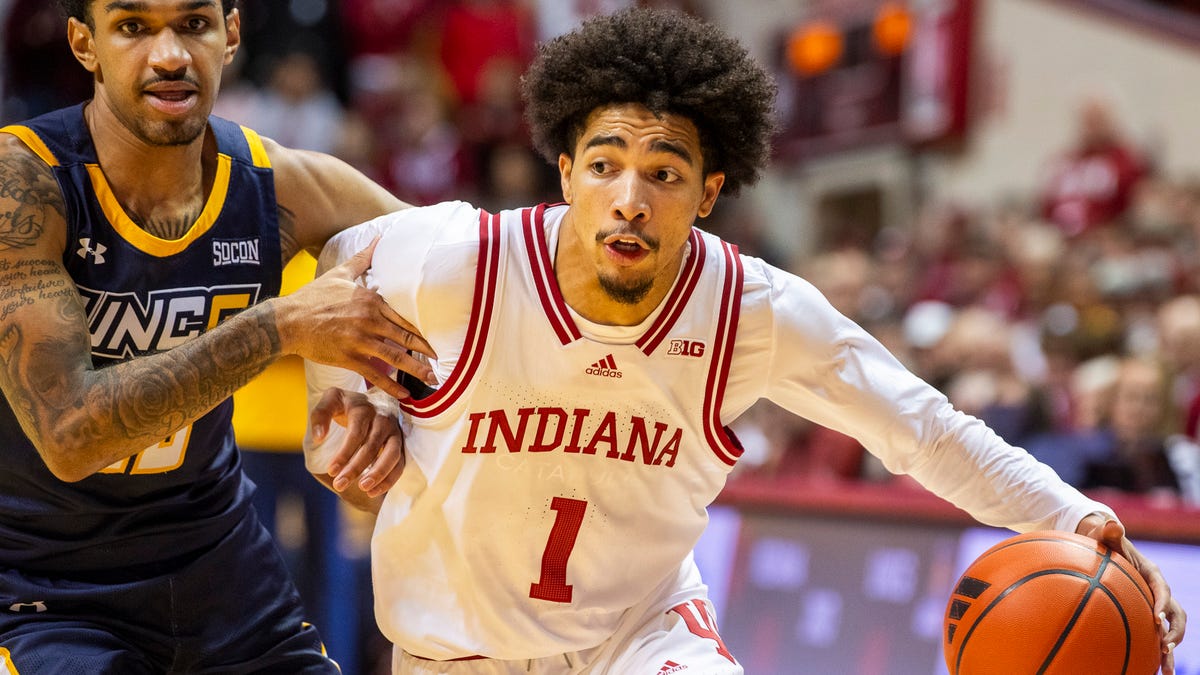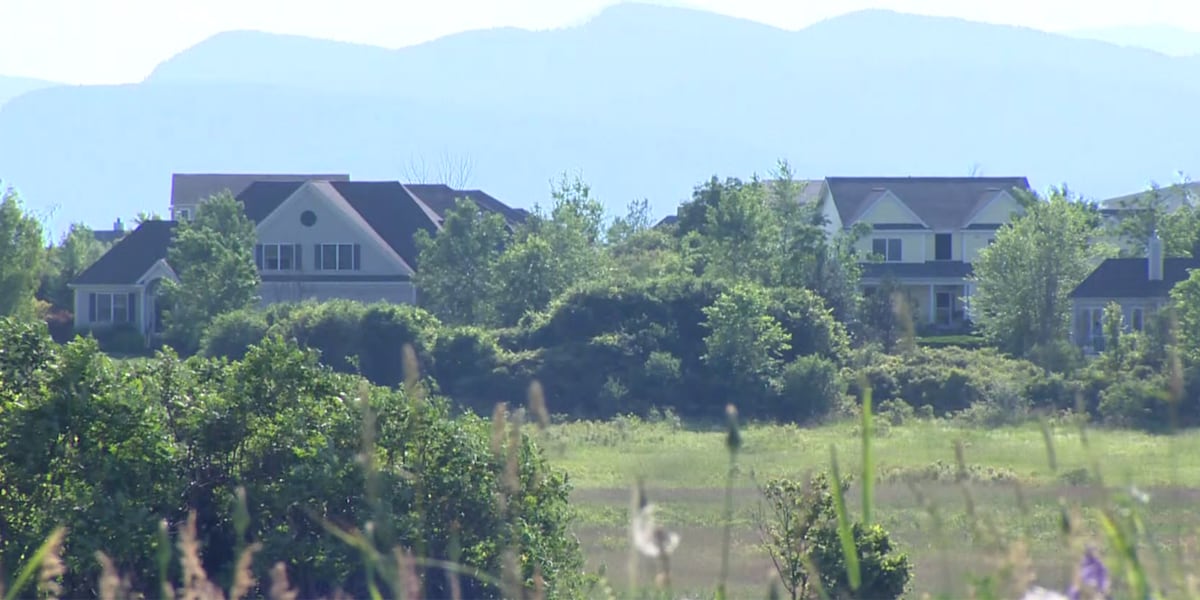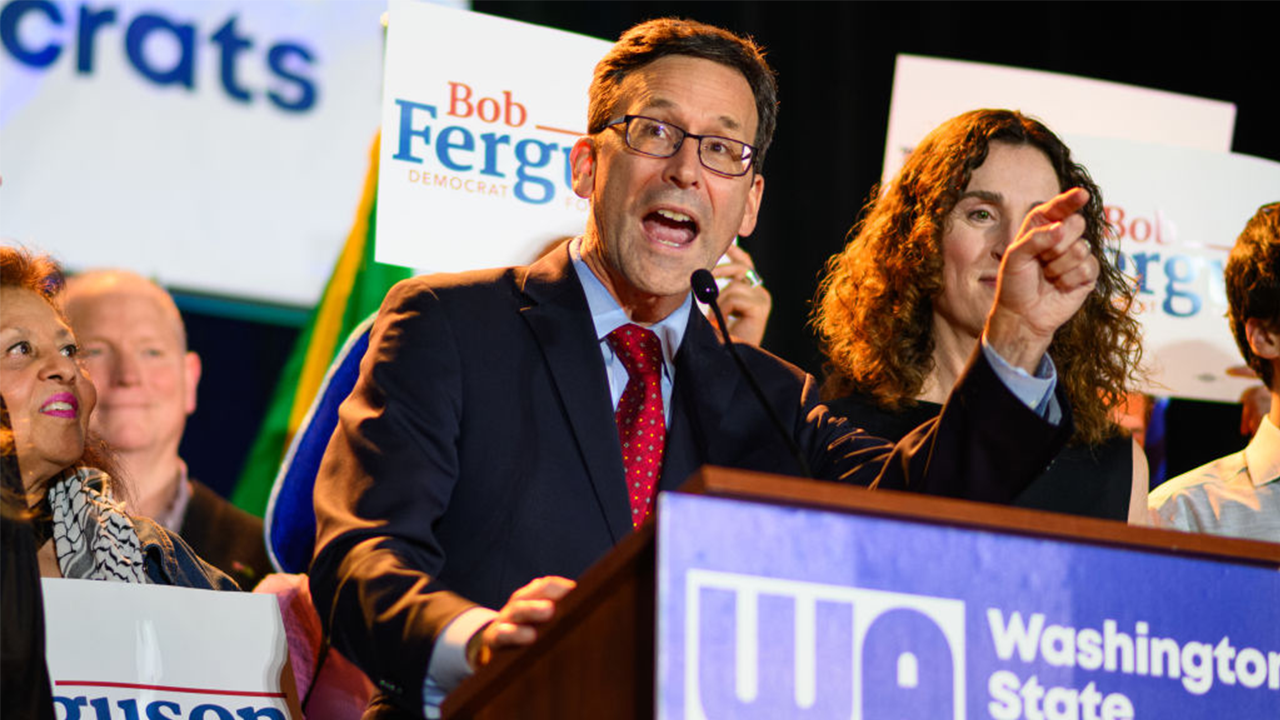World
‘Moving forward’: Ukraine claims gains on Bakhmut front

Ukraine forces are advancing along parts of the front line against Russian troops near the war-torn eastern town of Bakhmut.
“Our soldiers are moving forward in some areas of the front, and the enemy is losing equipment and manpower,” Oleksandr Syrskyi, commander of the Ukrainian Ground Forces, said on social media on Saturday.
“The defensive operation in the Bakhmut direction continues.”
Russia acknowledged on Friday its forces had fallen back north of Ukraine’s ruined eastern city in a retreat the head of Russia’s Wagner private army called a “rout” not a “regrouping”.
In its latest bulletin, Russia’s defence ministry said its forces gained control over another block in Bakhmut.
“The units of the Airborne Forces provided support to the assault units and pinned down the enemy on the flanks,” it said.
The ministry often uses the term “assault units” to denote the Wagner private militia, which has been spearheading the assault on Bakhmut at great cost in casualties.
Aircraft shot down
Videos posted on Russian social media, meanwhile, showed a helicopter apparently being shot down over Russia’s Bryansk region, bordering Ukraine.
The state news agency TASS cited an emergency services official as saying preliminary information indicated the engine caught fire before the crash near Klintsy, 40km (25 miles) from the border.
However, a video posted on the Russian pro-war Telegram channel Voyenniy Osvedomitel showed a helicopter high in the sky exploding, then plunging earthwards in flames.
A Russian Su-34 warplane also crashed in Bryansk, TASS reported. It was unclear what brought it down.
Russia said Ukraine used British-made long-range missiles to target civilian sites in the eastern Ukrainian city of Luhansk, wounding six children.
The United Kingdom on Thursday became the first country supply Kyiv with long-range cruise missiles, which will allow it to hit Russian troops and supply dumps far behind the front lines.
“Storm Shadow air-to-air missiles supplied to the Kyiv regime by Great Britain were used for the strike, despite London’s declarations that these weapons would not be used against civilian targets,” Russia’s defence ministry said.
It added Russia downed two Ukrainian aircraft – an Su-24 and a MiG-29 – that launched the missiles.
‘Historical shame’
Ukrainian President Volodymyr Zelenskyy arrived in Rome on Saturday for talks with government officials and Pope Francis.
In April, the pope announced the Vatican was involved in a peace mission to try to end the conflict between Russia and Ukraine but declined to give further details. Both Moscow and Kyiv publicly expressed surprise over his comments at the time.
It will be Zelenskyy’s first trip to Italy since Russia launched the full-scale invasion of Ukraine on February 24, 2022.
Earlier in the month, Zelenskyy met with the leaders of the Nordic nations in Finland. He also visited the Netherlands, where he, among other things, delivered a speech at the World Forum.
In Italy, he is to meet separately with President Sergio Mattarella and Prime Minister Giorgia Meloni before heading to the Vatican. He is also expected to be the guest of a popular Italian television talk show before heading to Germany.
Germany’s Defence Ministry said the country is preparing a new weapons package for Ukraine worth 2.7 billion euros ($2.9bn), reportedly Berlin’s largest since Russia invaded last year.
Kyiv said the massive new weapons package was another sign that Russia would lose its war against Ukraine. “States declare large defence aid packages for Ukraine,” said Mykhailo Podolyak, an adviser to Zelenskyy.
The aid indicated Russia was “bound to lose and sit on the bench of historical shame”, he said.
Ukraine’s Foreign Minister Dmytro Kuleba said he discussed the next weapons supplies with US Secretary of State Antony Blinken. “I paid close attention to the importance of providing Ukraine with F-16s and steps necessary to begin training of Ukrainian pilots.”
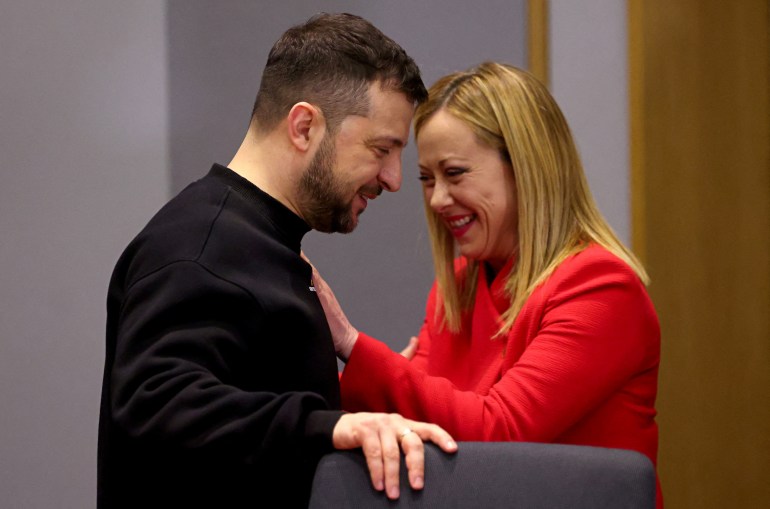
Zelenskyy to meet the pope
The meeting with the pope is expected to be the most significant part of Zelenskyy’s time in Italy. He previously met the pontiff at the Vatican in 2020, and the two have had several phone conversations since the war began.
At the start of the war, the pope tried to take a balanced approach in hopes of being a mediator but later began forcefully condemning Russia’s actions, comparing them with some of the worst crimes against Ukraine during the Soviet era.
Francis met this week with Russia’s outgoing ambassador to the Vatican, Alexander Avdeyev, and the Italian newspaper Il Messaggero reported the Vatican may have given the envoy a letter for Russian President Vladimir Putin.
Francis has often repeated calls for peace and has frequently expressed a wish to act as a broker between Kyiv and Moscow. His offer has so far failed to produce any breakthrough.
Zelenskyy and his team have been promoting Kyiv’s 10-point peace plan and urging world leaders to hold a Global Peace Summit based on the proposals.
It calls for restoring Ukraine’s territorial integrity, the withdrawal of Russian troops and the cessation of hostilities. Zelenskyy has repeatedly said the plan is not open to negotiations.

World
Manhattan's Top Federal Prosecutor to Resign Ahead of Trump Inauguration
World
Russian forces capture former British soldier fighting for Ukraine in Kursk: report
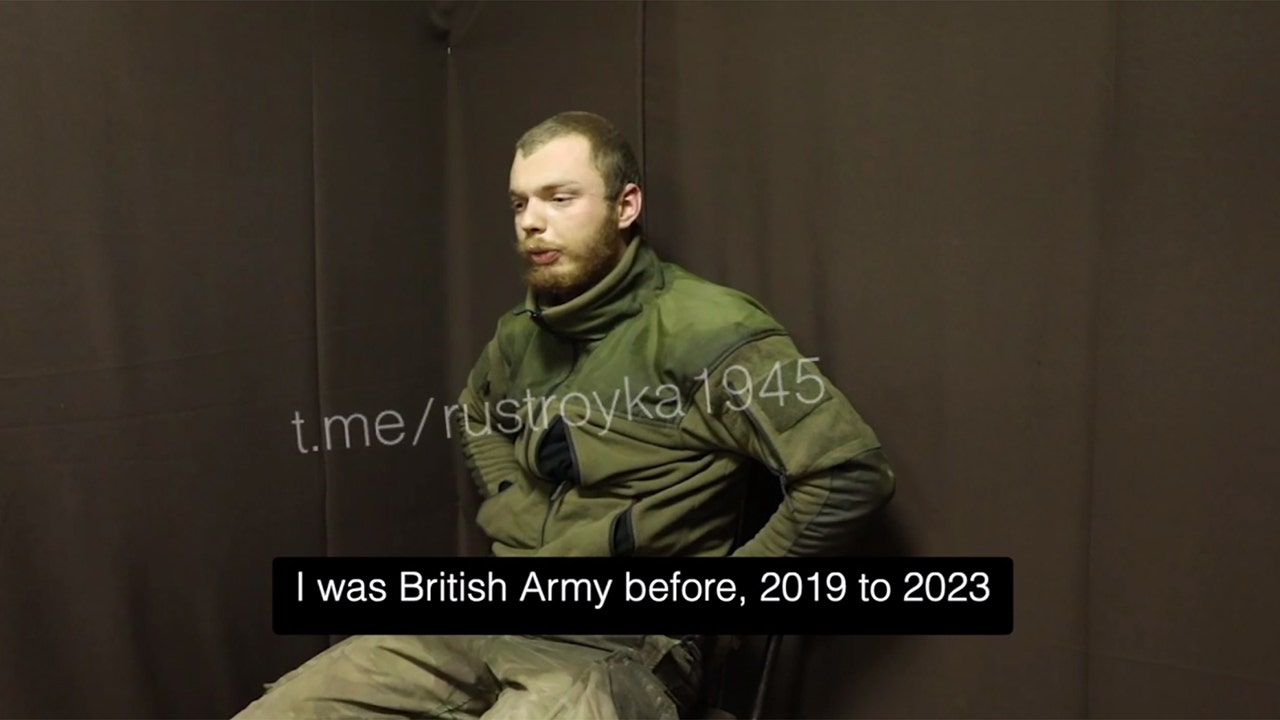
Russian forces captured a former British Army soldier who was fighting with Ukrainian troops in the Kursk region, according to reports on Monday.
In a video, the prisoner of war was sitting on a bench with his hand restrained as he identified himself as 22-year-old James Scott Rhys Anderson.
Russia’s Tass news agency reported on Monday that Russian security officials confirmed a British mercenary had been captured in the Kursk area.
“I was in the British Army before, from 2019 to 2023, 22 Signal Regiment,” Anderson told Russian authorities while being recorded. “Just a private. I was a signalman. One Signal Brigade, 22 Signal Regiment, 252 Squadron.”
RUSSIA TRICKS YEMENI MEN TO FIGHT IN UKRAINE UNDER HOUTHI SCHEME
Former British Army soldier James Scott Rhys Anderson was reportedly captured by Russian forces in the Kursk region while fighting for Ukraine. (Credit: East2West)
He expressed regret for joining Ukraine in its fight against Russia, explaining he had nearly lost everything.
When he left the military, he got fired from his job and applied on the International Legion (of Ukraine) webpage.
“I had just lost everything. I just lost my job. My dad was away in prison. I see it on the TV,” Anderson said while shaking his head. “It was a stupid idea.”
RUSSIA IS SUPPLYING HOUTHIS WITH SATELLITE DATA TO ATTACK SHIPS IN THE RED SEA: REPORT
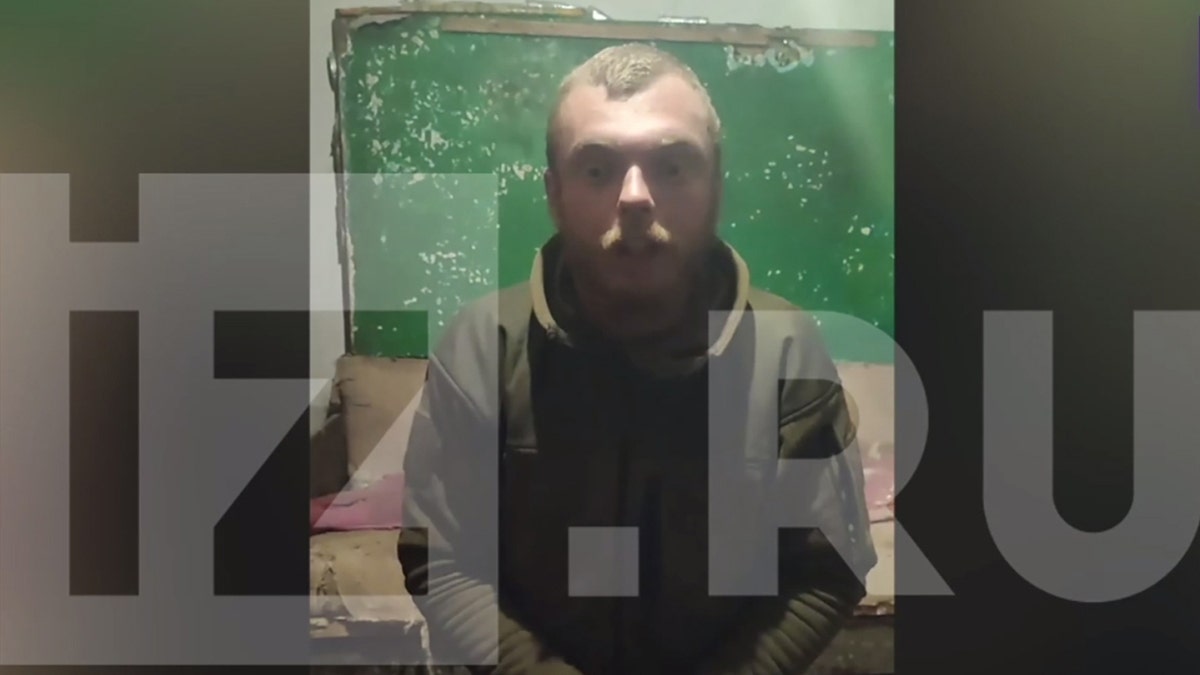
Former British Army soldier James Scott Rhys Anderson was reportedly captured by Russian forces in the Kursk region while fighting for Ukraine. (Credit: East2West)
The International Legion for Defense of Ukraine was created at the request of Ukrainian President Volodymyr Zelenskyy after Russia’s full-scale invasion of the country in February 2022.
The Associated Press reported that the Legion is a unit of Ukraine’s ground forces that mainly consists of foreign volunteers.
Anderson reportedly served as an instructor for Ukrainian troops and was deployed to the Kursk region against his will.
In the video, he said his commander took his stuff — passport, phone and other items — and ordered him to go to the Kursk region.
UKRAINE TO ANALYZE FRAGMENTS OF MISSILE FIRED BY RUSSIA CAPABLE OF CARRYING NUCLEAR WARHEADS

FILE PHOTO: Ukrainian servicemen hide from shelling, amid Russia’s attack on Ukraine, near the Russian border in Sumy region, Ukraine August 13, 2024. (REUTERS/Viacheslav Ratynskyi/File Photo)
“I don’t want to be here,” Anderson said.
The AP could not independently verify the report, but if confirmed, it said this could be one of the first publicly known cases of a Western national getting captured on Russian soil while fighting for Ukraine.
The U.K. Embassy in Moscow told the wire officials were “supporting the family of a British man following reports of his detention” though no other details were provided.
Anderson’s father, Scott Anderson, told Britain’s Daily Mail that his son’s Ukrainian commander informed him the young man had been captured.
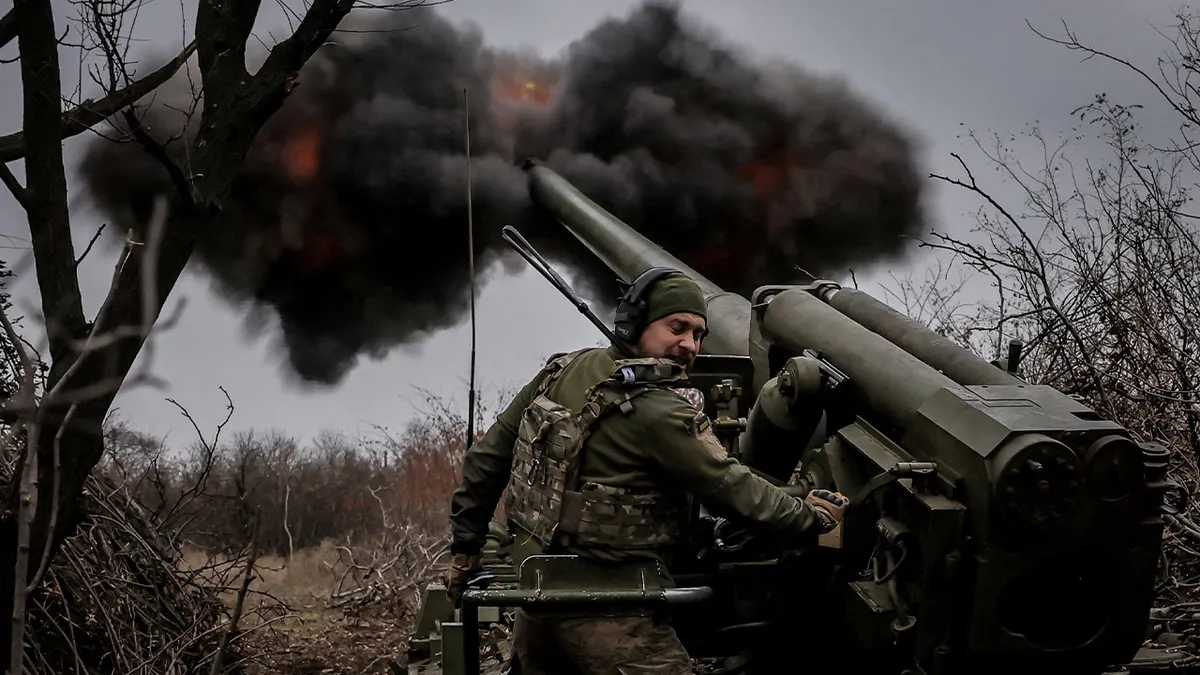
A serviceman of 24th Mechanized brigade named after King Danylo of the Ukrainian Armed Forces fires a 2s5 “Hyacinth-s” self-propelled howitzer towards Russian troops at a front line, amid Russia’s attack on Ukraine, near the town of Chasiv Yar in Donetsk region, Ukraine November 18, 2024. (Oleg Petrasiuk/Press Service of the 24th King Danylo Separate Mechanized Brigade of the Ukrainian Armed Forces/Handout via REUTERS )
The senior Anderson also said his son served in the British military for four years, worked as a police custody officer, and then went to Ukraine to fight. He told the paper he tried to convince his son not to join the Ukrainian military, and now fears for his safety.
“I’m hoping he’ll be used as a bargaining chip, but my son told me they torture their prisoners, and I’m so frightened he’ll be tortured,” he told Britain’s Daily Mail.
While being questioned, the younger Anderson talked about how he got to Ukraine from Britain, saying he flew to Krakow, Poland from London Luton. From there, he took a bus to Medyka in Poland, which is on the Ukrainian border.
Anderson’s capture comes amid reports Russia is recruiting hundreds of Yemeni men to fight in its war in Ukraine by luring them to Russia under false pretenses in coordination with the Houthi terrorist network, as reported by the Financial Times.
A senior Ukrainian defense official told Fox News that Moscow is trying to involve as many foreign mercenaries as possible in its war against Ukraine, whether from its allies or proxies in poor, impoverished countries.
The Ukrainian Ministry of Defense similarly confirmed the report to Fox News and said, “Russi[a] has escalated this war twice recently. First, when they brought North Korean fighters, and second, when they used [a] ballistic missile in Ukraine.”
Fox News Digital’s Caitlin McFall and Nana Sajaia, as well as The Associated Press contributed to this report.
World
German FM questions if DHL plane crash was 'hybrid incident'
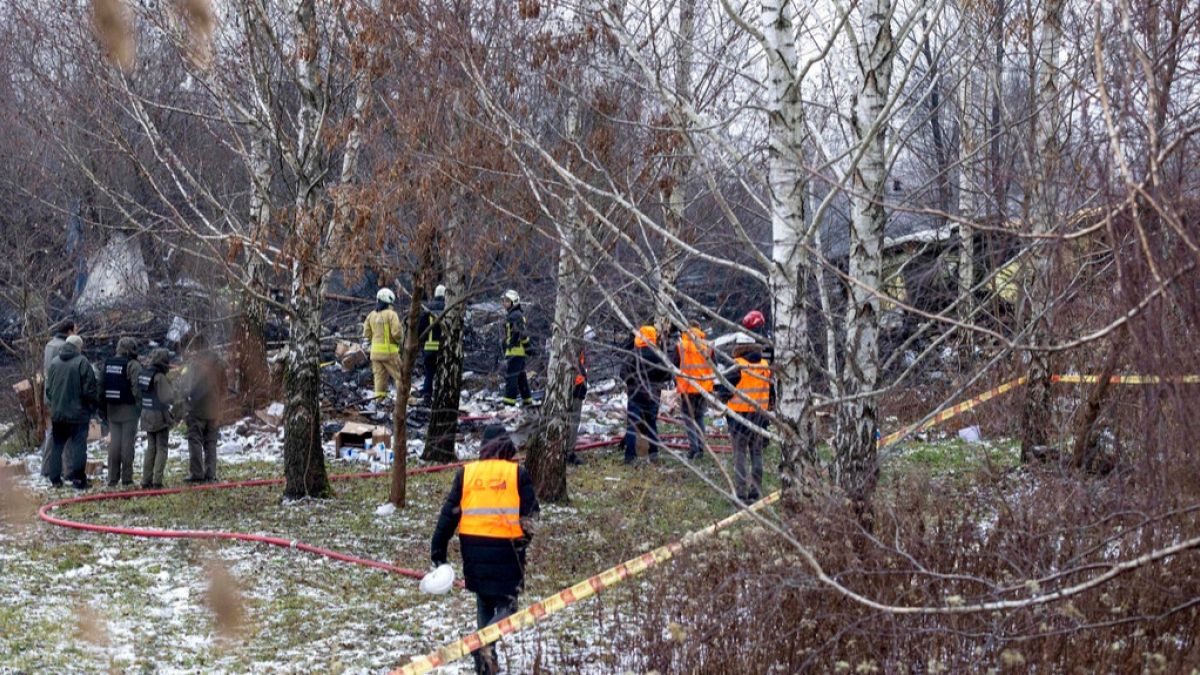
A cargo plane crashed into a house on its approach to Lithuania’s Vilnius Airport on Monday morning, killing one crew member and injuring others.
Authorities search for answers as they continue their investigation after a Boeing 737 cargo plane crashed into a house near Vilnius Airport in Lithuania on Monday morning.
The DHL cargo plane operated by Swiftair, departing from Leipzig in Germany, crashed while approaching the airport in Lithuania’s capital. A Spanish crew member was killed, and three other people on board were rushed to the hospital, one of them is in critical condition. No one on the ground was reportedly injured.
Speaking on the sidelines of the G7 Foreign Ministers’ meeting in Italy, Germany’s Foreign Minister Annalena Baerbock raised the question of whether the plane crash was a hybrid attack.
“We have to say at this point that we and our Lithuanian partners must now seriously ask ourselves whether this was an accident or, after last week, another hybrid incident. That shows what volatile times we are living in in the middle of Europe,” she said.
Lithuanian officials said one line of inquiry would examine Russian involvement but stressed that no evidence exists yet.
Last month, Western security officials warned that Russian military intelligence may be carrying out sabotage acts against nations in retaliation for their support to Ukraine.
Darius Jauniškis, the chief of Lithuania’s Intelligence, mirrored these concerns and said terrorism cannot be ruled out: “The State Security Department, together with the Department of Operational Services, have warned that these things are possible in the future. We see Russia becoming more aggressive.”
He added that however for now, “we really cannot make any attributions or point fingers at anyone, because there is no information about it.”
Lithuanian Defence Minister Laurynas Kasčiūnas said, “According to the information I have at the moment, I can say that there are no confirming facts that this was some kind of sabotage or terrorist incident. But the investigation will answer all the questions.”
The General Commissioner of the Lithuanian Police, Arūnas Paulauskas, chose not to speculate and said the cause of the crash might be the result of a technical failure or a human error. “But we are not aviation experts here to discuss this matter in such detail,” he added.
Paulauskas confirmed that investigators have visited the hospital, and will talk with the aircraft’s police and other aviation officials when they get the chance.
“As far as I know, the investigators have gone to the hospital. If there is an opportunity to communicate with the aircraft’s pilots to determine the initial causes, as well as with officials responsible for civil aviation.”
Experts say communication with Air Traffic Controller seemed ‘normal’
Several aviation experts who spoke to local media said they noticed nothing out of the ordinary when they listened to the communication between the crew and the Air Traffic Controller (ATC) that was shared online.
Aviation expert Vidas Kaupelis said it seemed there was “routine communication between the air traffic controller and the pilot”.
“They didn’t declare any emergency situation, they didn’t speak of any technical failures or fires,” the expert added.
The Chief of the Aircraft Accident and Incident Investigation under Ministry of Justice, Laurynas Naujokaitis, said German and Spanish investigators are due to arrive in Lithuania to assist local authorities with the probe.
“Currently we have an answer that a German safety probe institution is sending four investigators, Spain safety probe institution is sending two,” he said. “We are still gathering information regarding technical maintenance, meteorological, navigation and qualification information.”
-

 Business1 week ago
Business1 week agoColumn: Molly White's message for journalists going freelance — be ready for the pitfalls
-

 Science6 days ago
Science6 days agoTrump nominates Dr. Oz to head Medicare and Medicaid and help take on 'illness industrial complex'
-

 Politics1 week ago
Politics1 week agoTrump taps FCC member Brendan Carr to lead agency: 'Warrior for Free Speech'
-
/cdn.vox-cdn.com/uploads/chorus_asset/file/25739950/247386_Elon_Musk_Open_AI_CVirginia.jpg)
/cdn.vox-cdn.com/uploads/chorus_asset/file/25739950/247386_Elon_Musk_Open_AI_CVirginia.jpg) Technology1 week ago
Technology1 week agoInside Elon Musk’s messy breakup with OpenAI
-

 Lifestyle1 week ago
Lifestyle1 week agoSome in the U.S. farm industry are alarmed by Trump's embrace of RFK Jr. and tariffs
-

 World1 week ago
World1 week agoProtesters in Slovakia rally against Robert Fico’s populist government
-

 Health3 days ago
Health3 days agoHoliday gatherings can lead to stress eating: Try these 5 tips to control it
-

 News1 week ago
News1 week agoThey disagree about a lot, but these singers figure out how to stay in harmony
